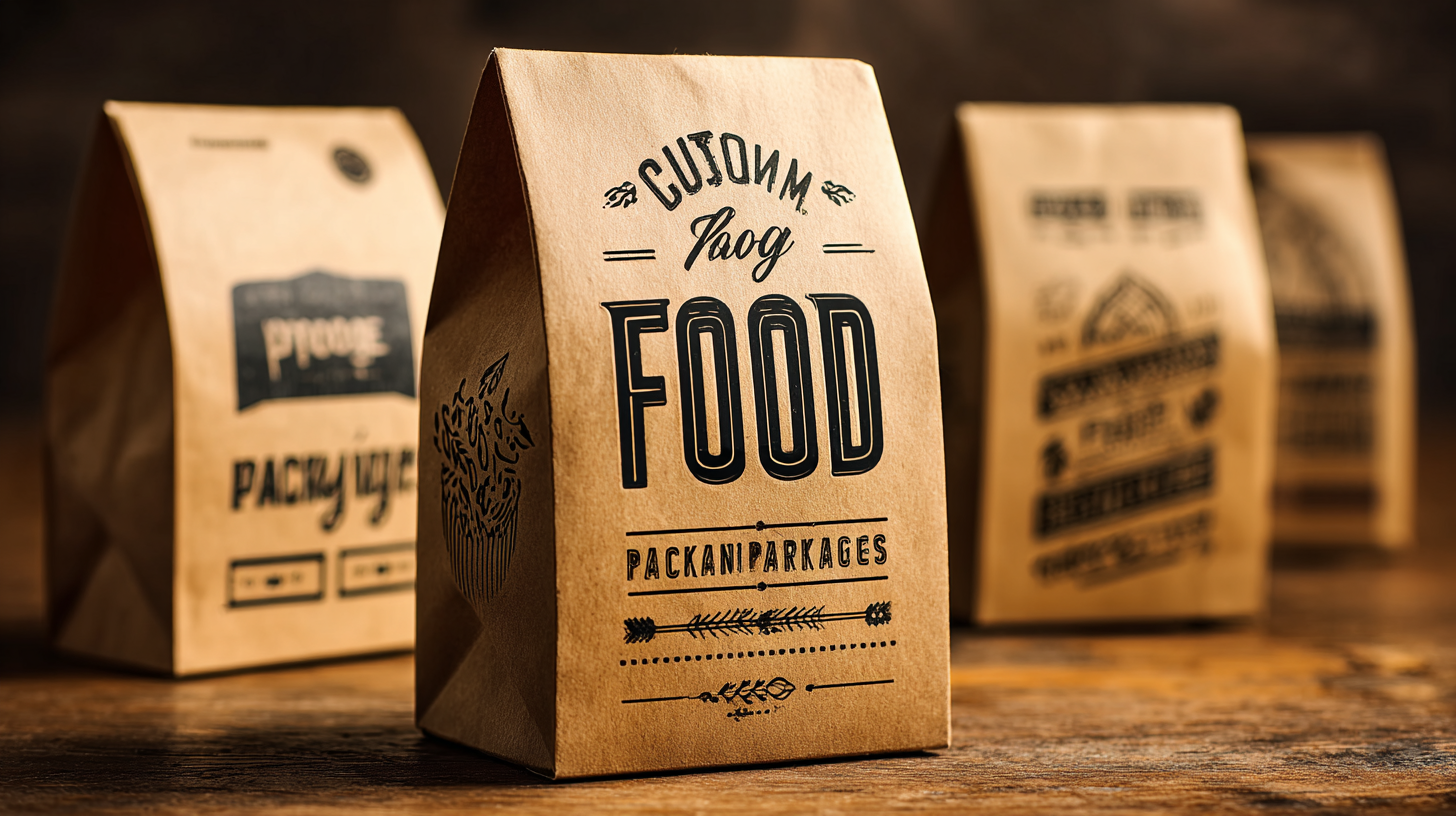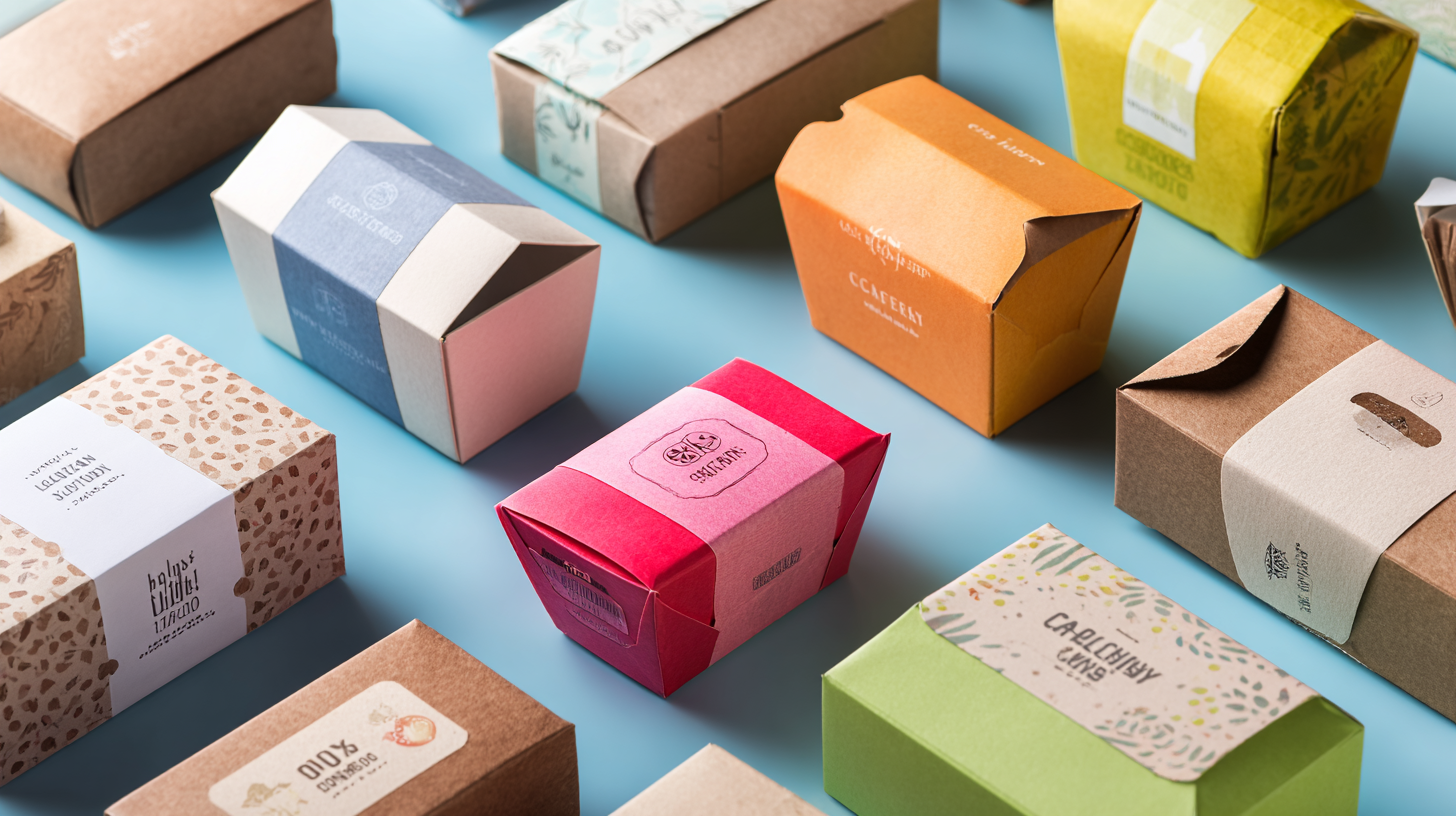How to Identify the Best Custom Food Packaging Suppliers for Your Business: Key Industry Insights
As the global food packaging market continues to evolve, the role of Custom Food Packaging becomes increasingly pivotal for businesses looking to differentiate themselves in a competitive landscape. According to a recent report by Grand View Research, the global food packaging market is expected to reach USD 500 billion by 2025, with a compound annual growth rate (CAGR) of 5.4%. This growth is heavily driven by consumer demand for sustainable, convenient, and visually appealing packaging solutions. To capitalize on these trends, identifying the right Custom Food Packaging suppliers is crucial. The right partner not only enhances product presentation but also aligns with regulatory standards and customer preferences. In this blog, we will delve into the essential criteria to evaluate potential suppliers and provide key industry insights that could shape your packaging strategy and overall brand success in this dynamic sector.

Understanding Your Business Needs for Custom Food Packaging Solutions
When embarking on the journey to find the right custom food packaging supplier for your business, it's crucial to start with a deep understanding of your specific needs. Consider the nature of your food products—whether they require temperature control, barrier protection, or aesthetic appeal. Each type of food has unique packaging requirements that can affect shelf life, safety, and overall consumer appeal. Identifying these needs upfront helps streamline the selection process and ensures that the chosen supplier can meet your operational demands.

Additionally, it’s important to assess the scale of your production and distribution. Are you a small artisan producer looking for limited runs, or a large manufacturer requiring mass production capabilities? Your volume will significantly influence your choice of supplier as it affects pricing, lead times, and inventory management. Furthermore, quality standards and regulatory compliance are paramount in the food industry; choosing a supplier that understands these aspects can enhance your brand's reliability and reputation in the marketplace. By aligning your business objectives with the right supplier, you can ensure that your custom packaging not only protects your products but also resonates with your target audience.
Assessing Supplier Credentials: Certifications and Compliance Standards
When selecting a custom food packaging supplier, assessing their credentials is paramount. Start by examining their certifications, such as ISO 9001, which indicates a commitment to quality management systems, or the FDA approval for food-safe materials. These certifications ensure that the supplier adheres to industry standards, minimizing the risk of compliance issues that could jeopardize your business or product integrity. Moreover, specialized certifications in sustainability, such as FSC or compostability labels, have become increasingly important as consumers prioritize eco-friendly products.
Next, consider the supplier’s compliance with local and international regulations. A reputable supplier should be able to provide documentation that demonstrates their compliance with health and safety regulations, such as the Food Safety Modernization Act (FSMA) in the United States. This not only ensures that the packaging materials are safe but also builds trust and transparency in your supply chain. In addition to certifications and compliance, look for suppliers who engage in regular audits and inspections, showcasing their commitment to maintaining high standards in food packaging processes.
Evaluating Packaging Materials: Sustainability and Safety Standards
When evaluating custom food packaging suppliers, it's crucial to prioritize the sustainability and safety of packaging materials. Consumers today are increasingly aware of environmental issues, which has driven demand for eco-friendly materials. Suppliers that offer biodegradable, recyclable, or compostable options not only align with this trend but also demonstrate their commitment to reducing plastic waste and carbon footprints. Investigating a supplier's sourcing practices can provide valuable insights into the sustainability of their materials, ensuring that they are committed to responsible production methods.

Safety standards are equally important when choosing packaging for food products. Materials used in food packaging must comply with stringent regulations set by organizations such as the FDA or EU food safety authorities. It's essential to partner with suppliers who can provide certification and documentation verifying that their packaging meets these safety standards. Regular testing should also be conducted to ensure that materials do not leach harmful chemicals into food items, safeguarding consumer health while maintaining your brand’s reputation. By focusing on both sustainability and safety, businesses can establish trust with their customers and contribute positively to the environment.
Comparing Costs vs. Quality: Making Financially Sound Decisions
When selecting custom food packaging suppliers, one of the most critical decisions revolves around the balance between cost and quality. It's easy to be tempted by low prices, but compromising on quality can lead to subpar packaging that affects your product's perception and shelf life. For instance, investing in higher-quality materials can enhance product safety and customer satisfaction, ultimately leading to better brand loyalty and sales. Thus, it’s essential to conduct thorough research and understand the implications of the packaging materials you choose.
Moreover, consider the long-term value of your packaging investments. A slightly higher initial cost for premium materials may result in reduced waste and enhanced product preservation, translating to significant savings over time. Develop a detailed cost-benefit analysis that evaluates various supplier options based on their product quality, durability, and reputation in the industry. Engaging with suppliers who can offer samples and transparent pricing will empower you to make more informed decisions that align with your business objectives while ensuring you maintain a competitive edge in the market.
Comparison of Cost vs. Quality in Custom Food Packaging Suppliers
This chart illustrates the trade-off between costs and quality ratings for custom food packaging suppliers. It helps businesses assess which suppliers provide the best value for their investment.
Analyzing Supplier Capabilities: Lead Times, Flexibility, and Innovation
When choosing the right custom food packaging supplier, several key factors play a critical role in ensuring they can meet your business needs. Lead times are crucial; suppliers that can deliver quickly without compromising quality can significantly enhance your efficiency. A reliable supplier should provide a transparent timeline from the initial concept to final production, allowing you to better plan your inventory and product launches. A supplier with a track record of meeting or exceeding lead time expectations can become an invaluable partner in your supply chain.
Flexibility is another vital characteristic. The food industry is dynamic, with fluctuating demands and changing regulations. A supplier who can easily adapt to your changing needs—whether it’s a shift in order volume or last-minute design adjustments—will greatly contribute to your business's agility. Moreover, an innovative supplier that invests in research and development can offer cutting-edge packaging solutions that not only enhance product protection but also improve sustainability. By prioritizing these aspects, businesses can select suppliers that align with their operational goals and drive future success.
How to Identify the Best Custom Food Packaging Suppliers for Your Business: Key Industry Insights
| Supplier Type | Lead Time (Days) | Flexibility (1-5) | Innovation Score (1-10) | Sustainability Practices |
|---|---|---|---|---|
| Supplier A | 10 | 4 | 8 | Recycled Materials |
| Supplier B | 15 | 5 | 9 | Biodegradable Packaging |
| Supplier C | 7 | 3 | 7 | Energy-Efficient Processes |
| Supplier D | 20 | 2 | 6 | Local Sourcing |